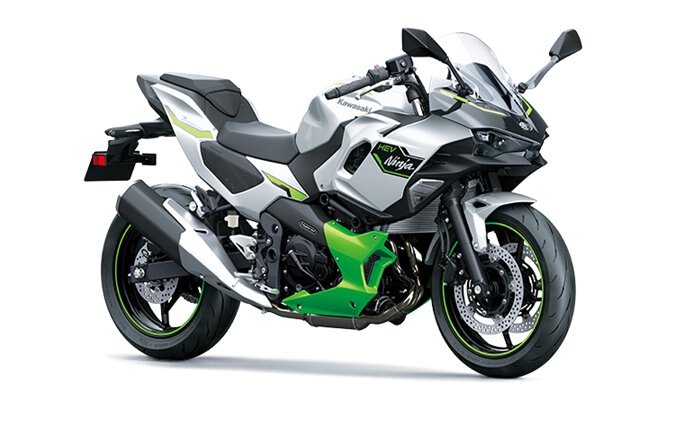
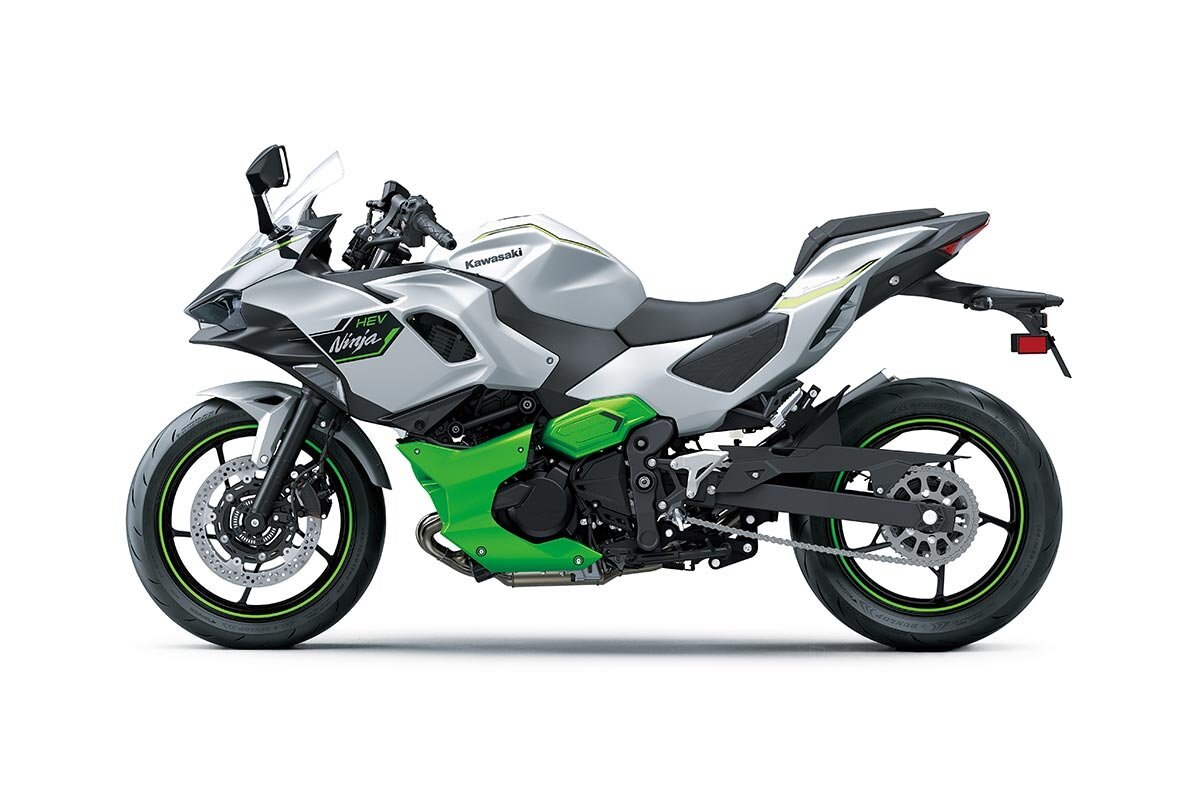
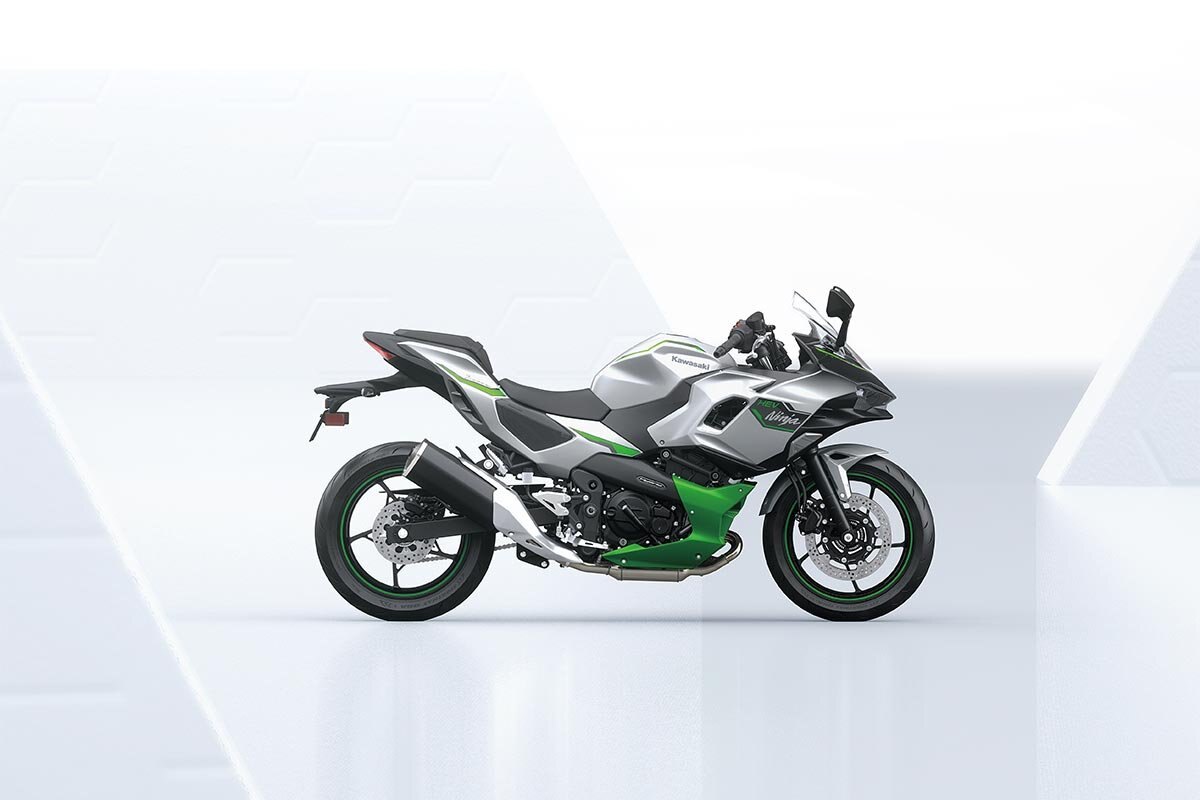
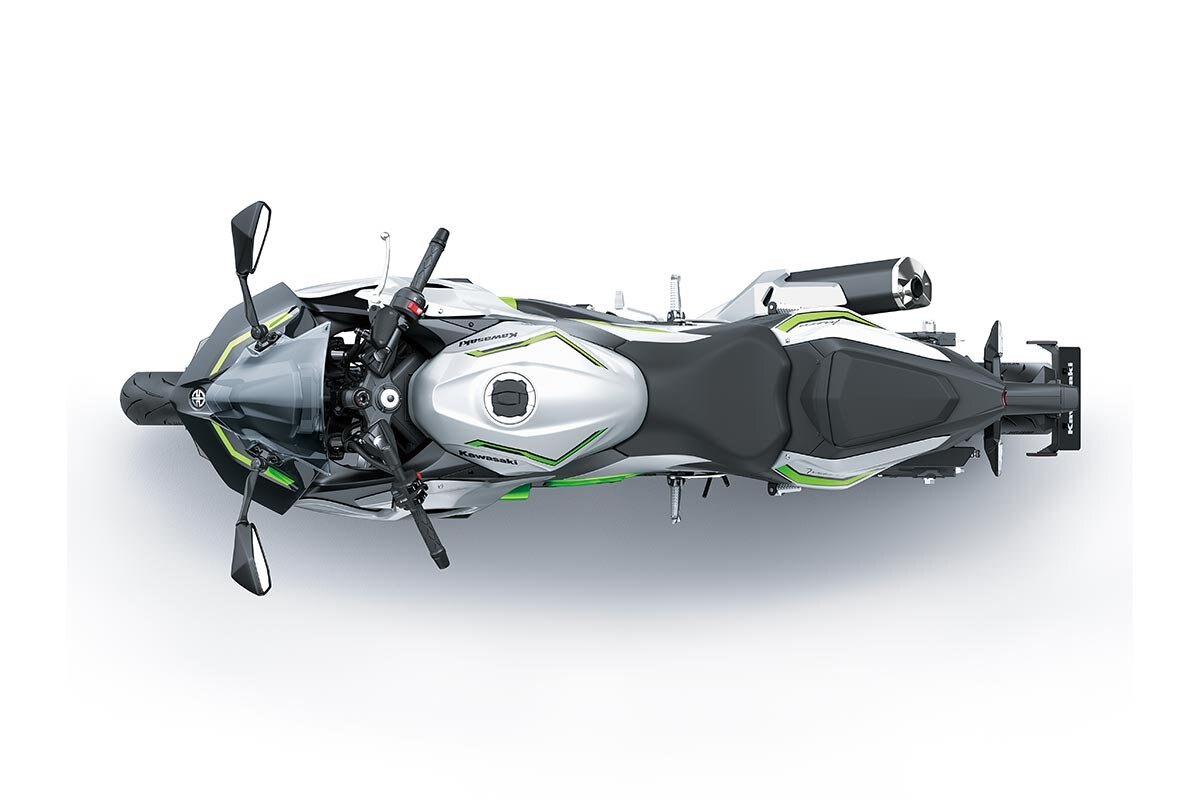
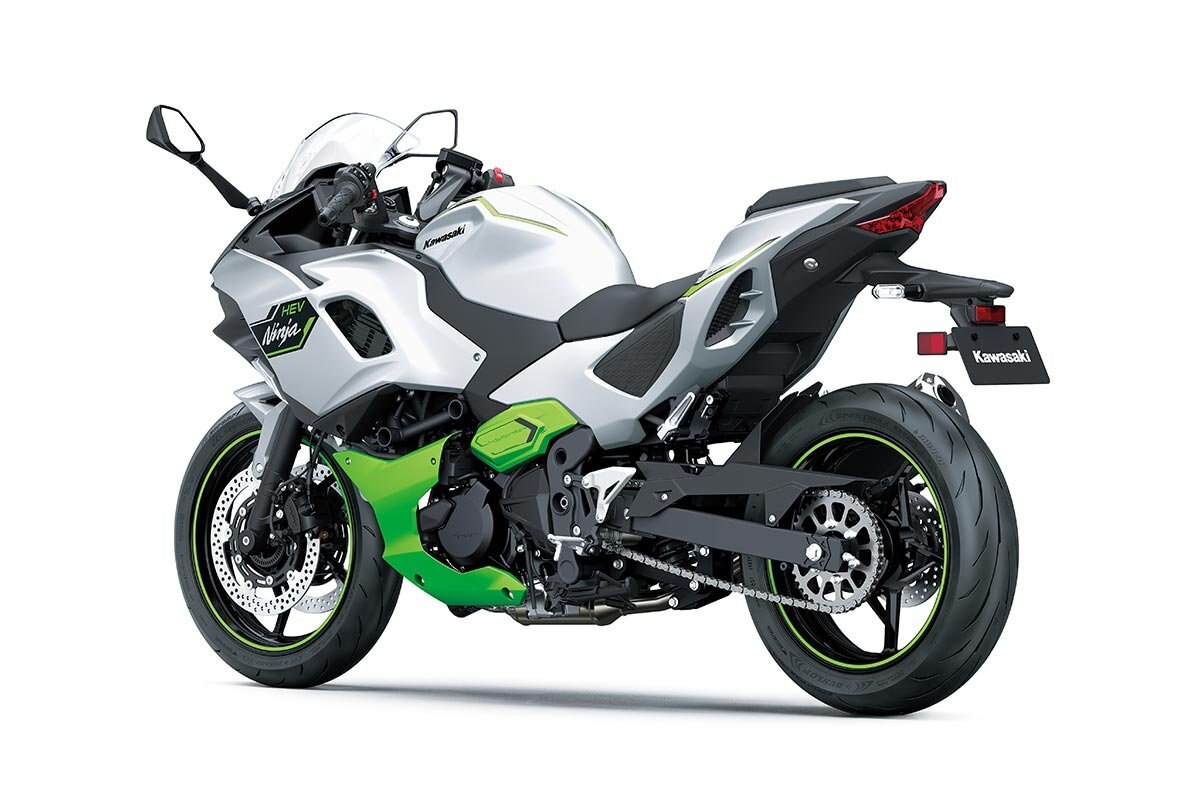
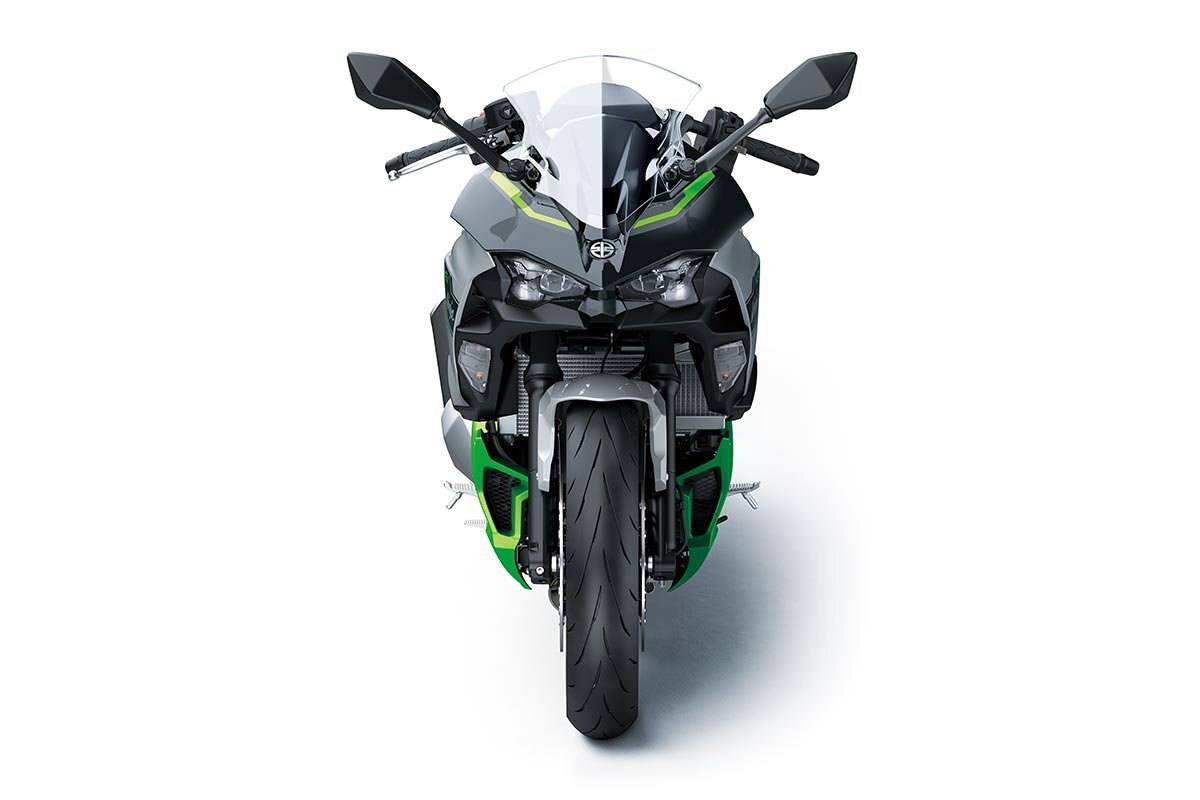
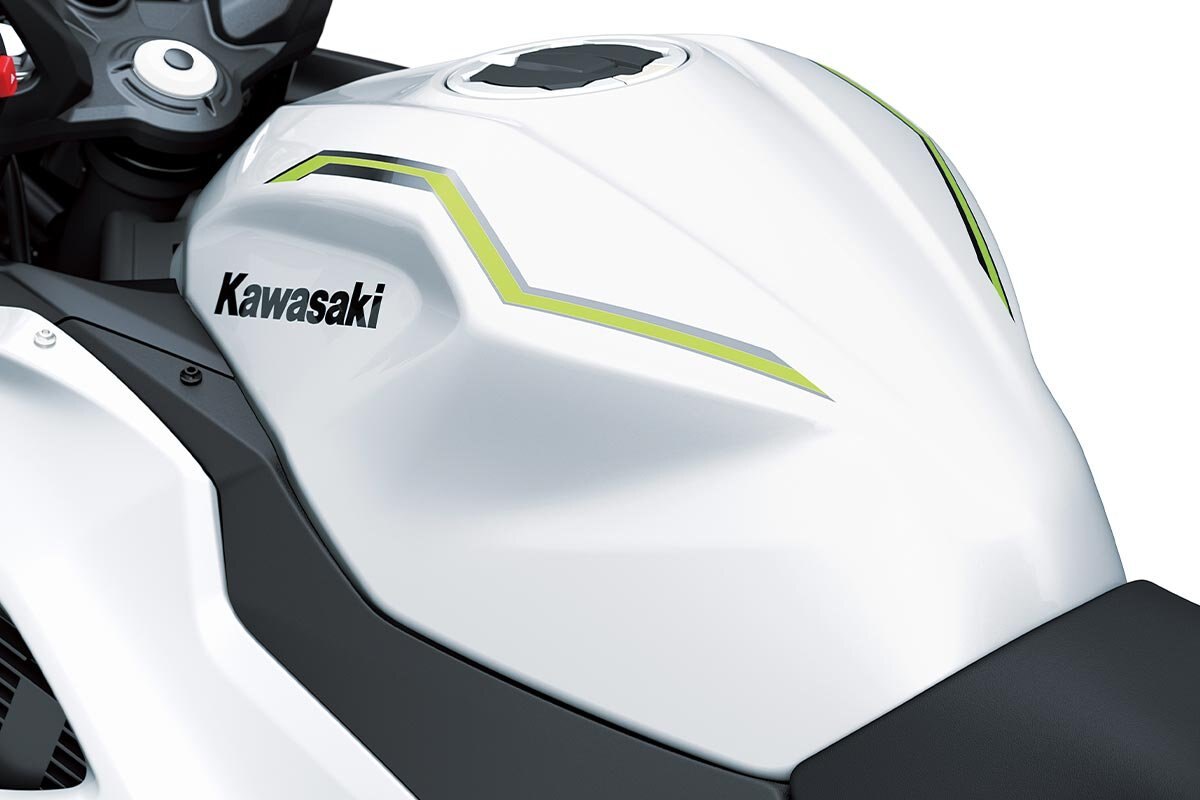
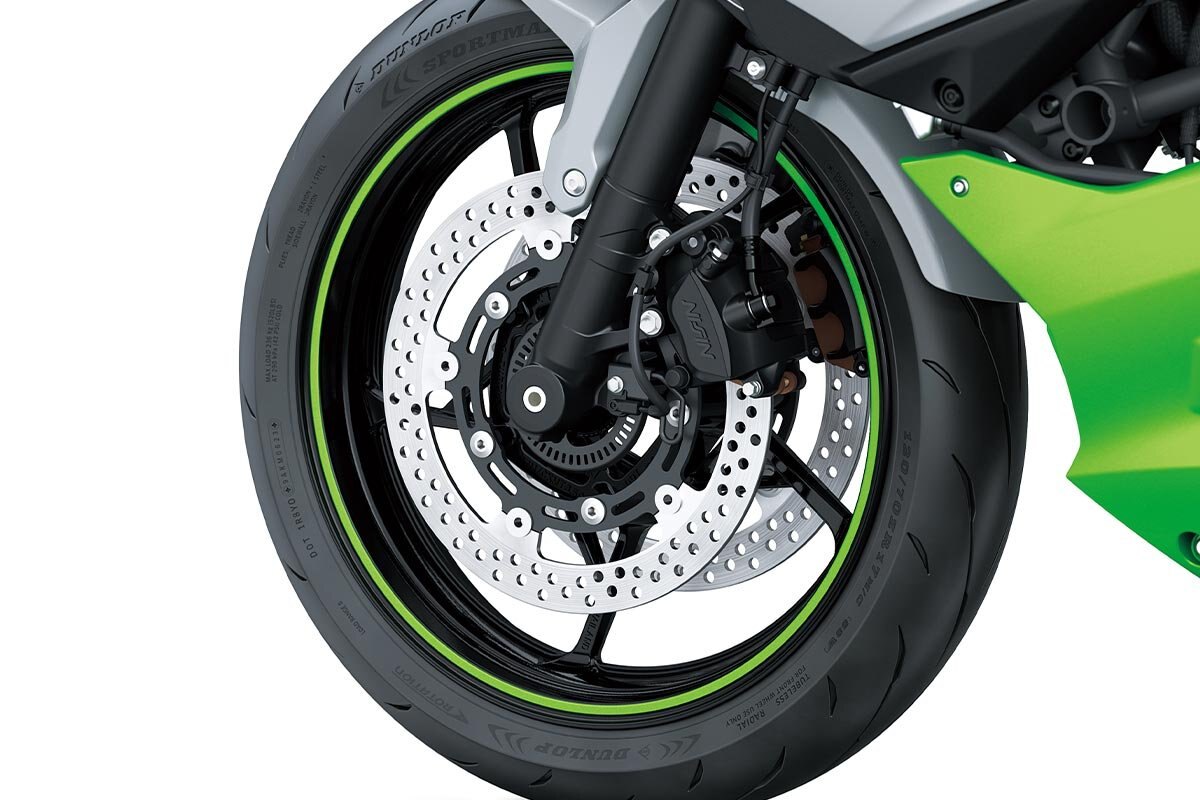
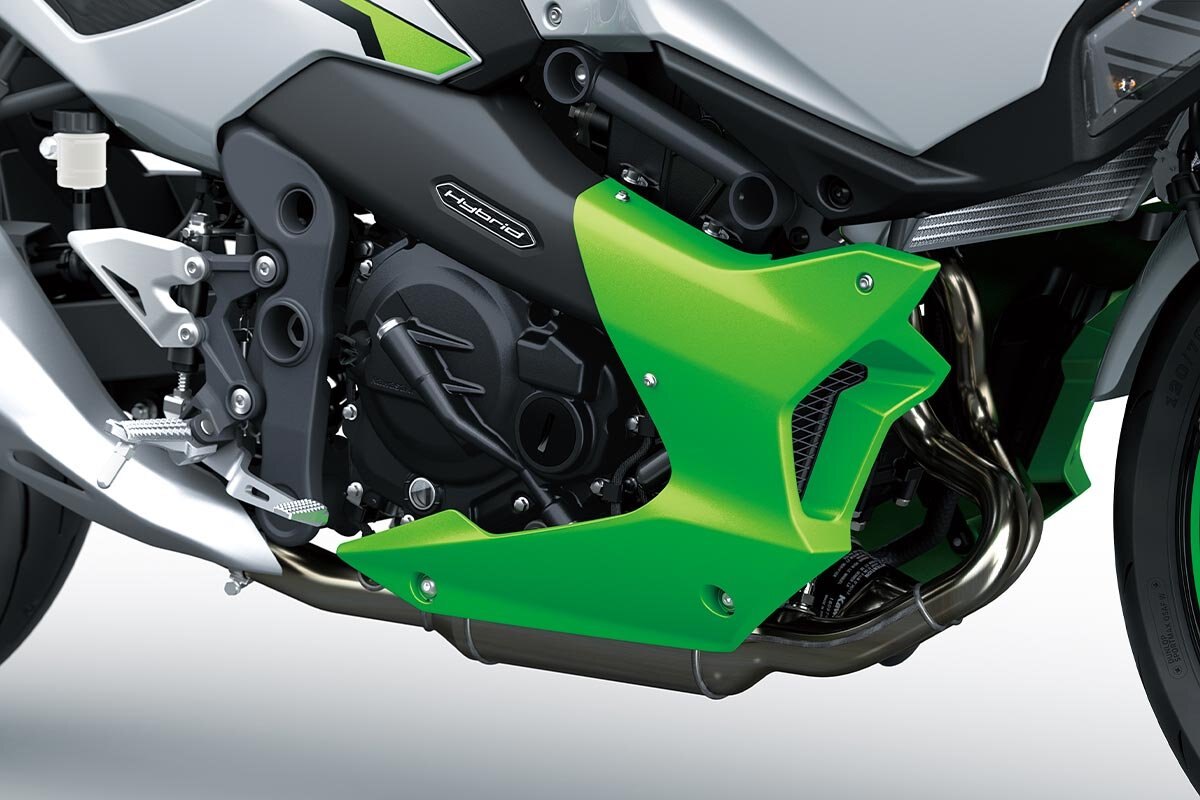
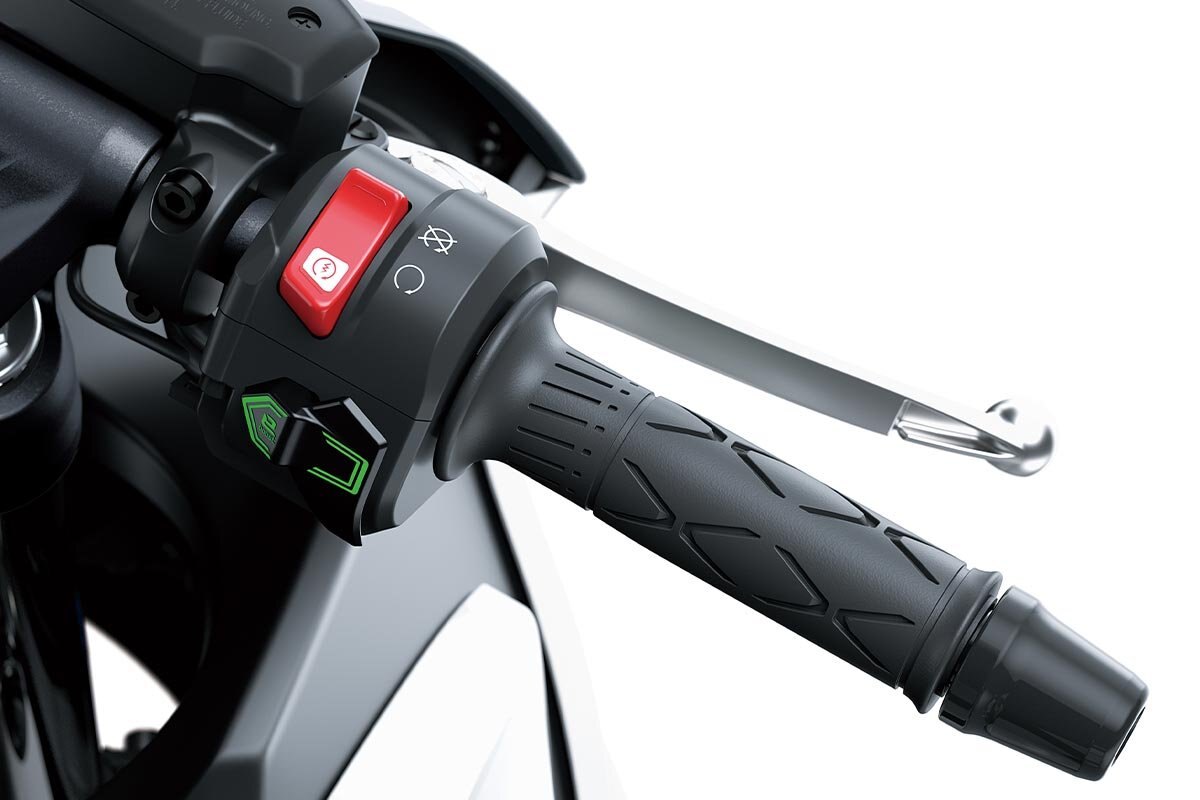
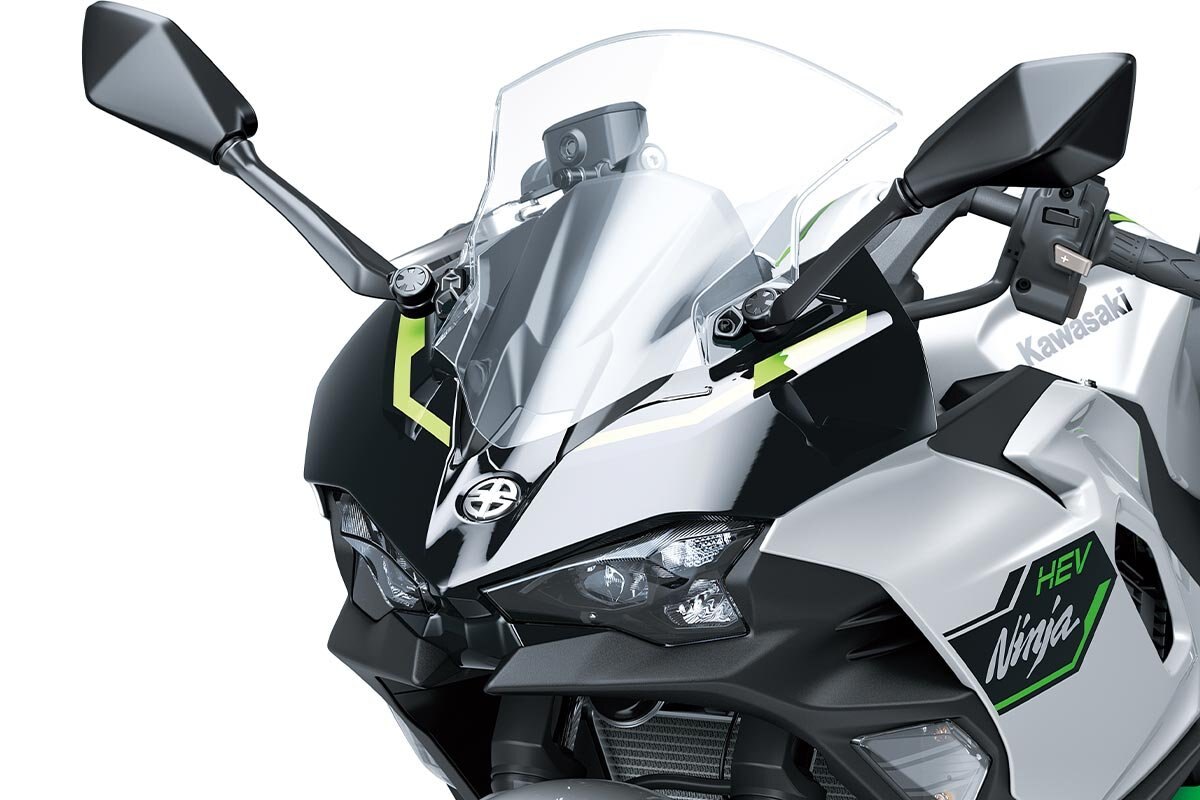
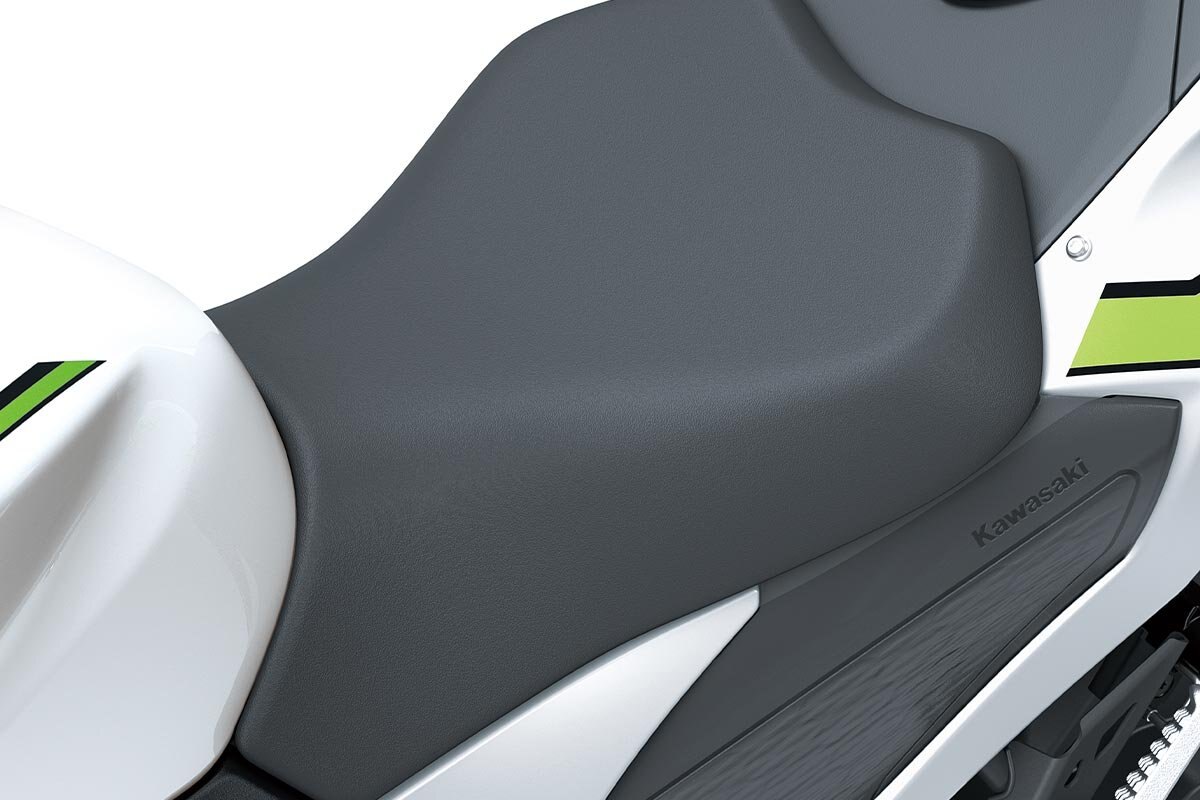
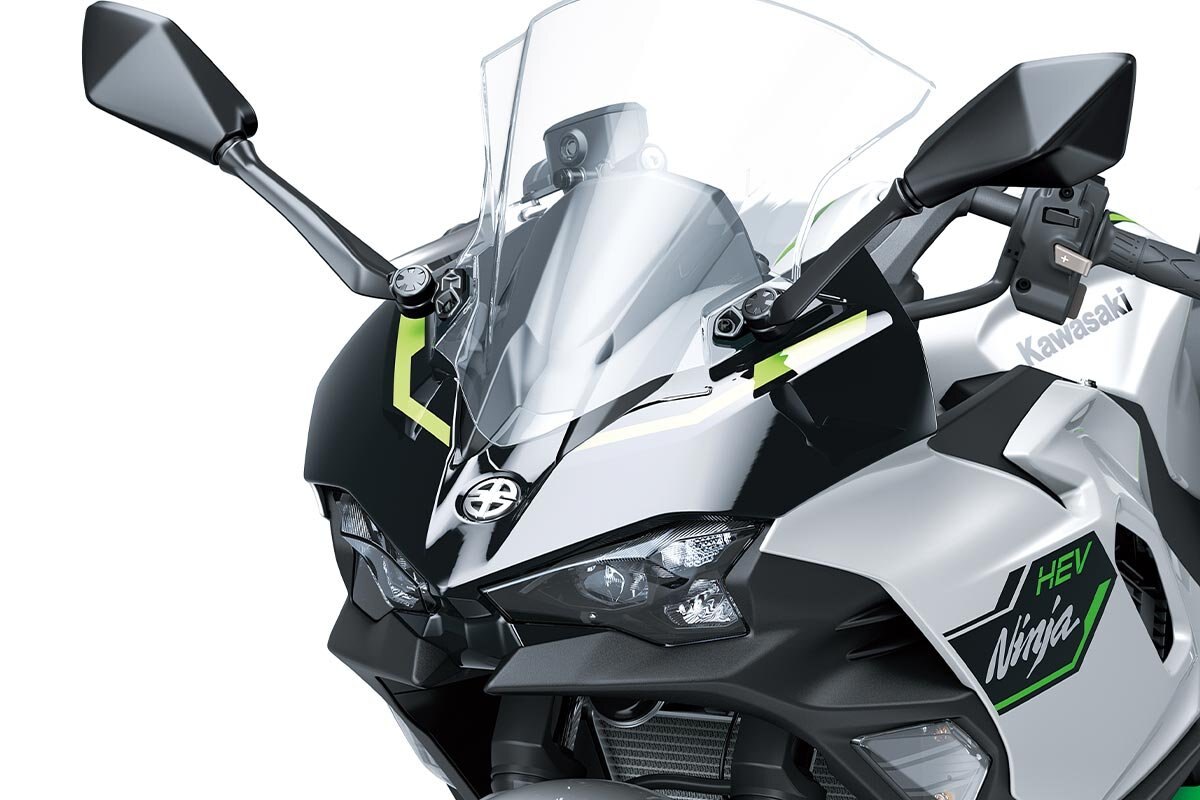
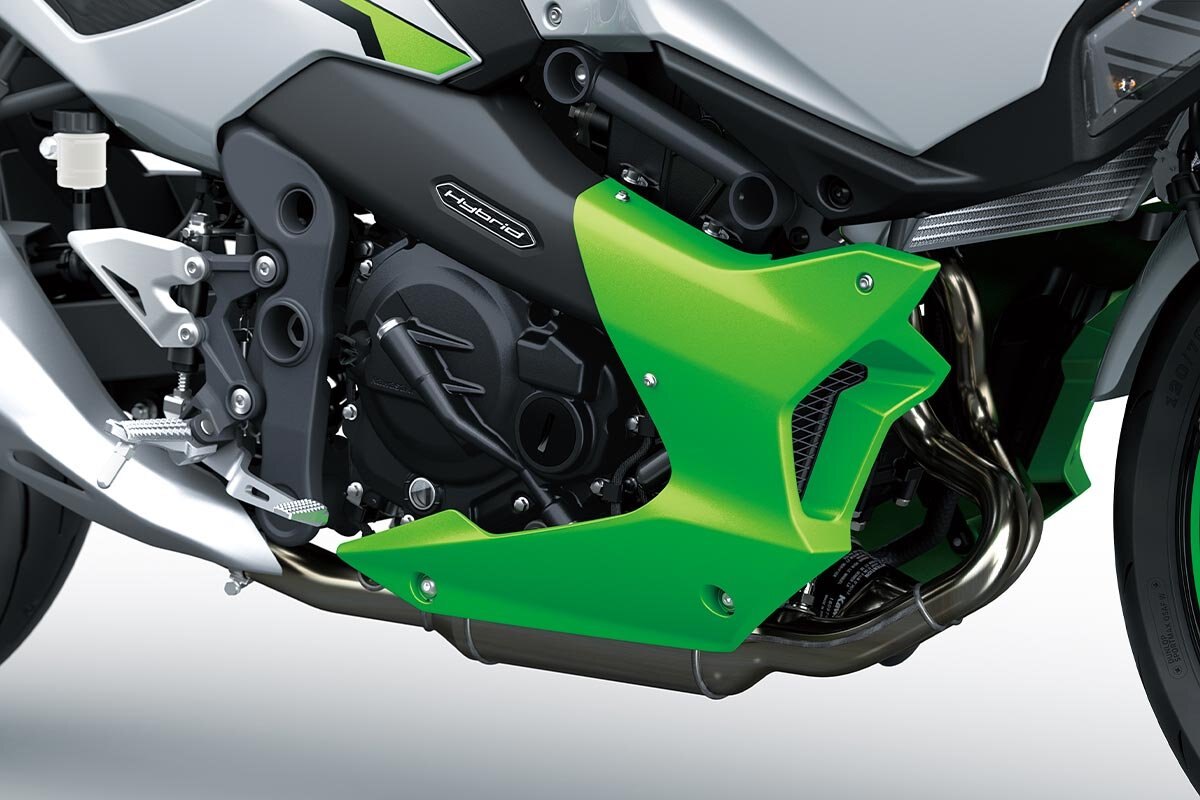
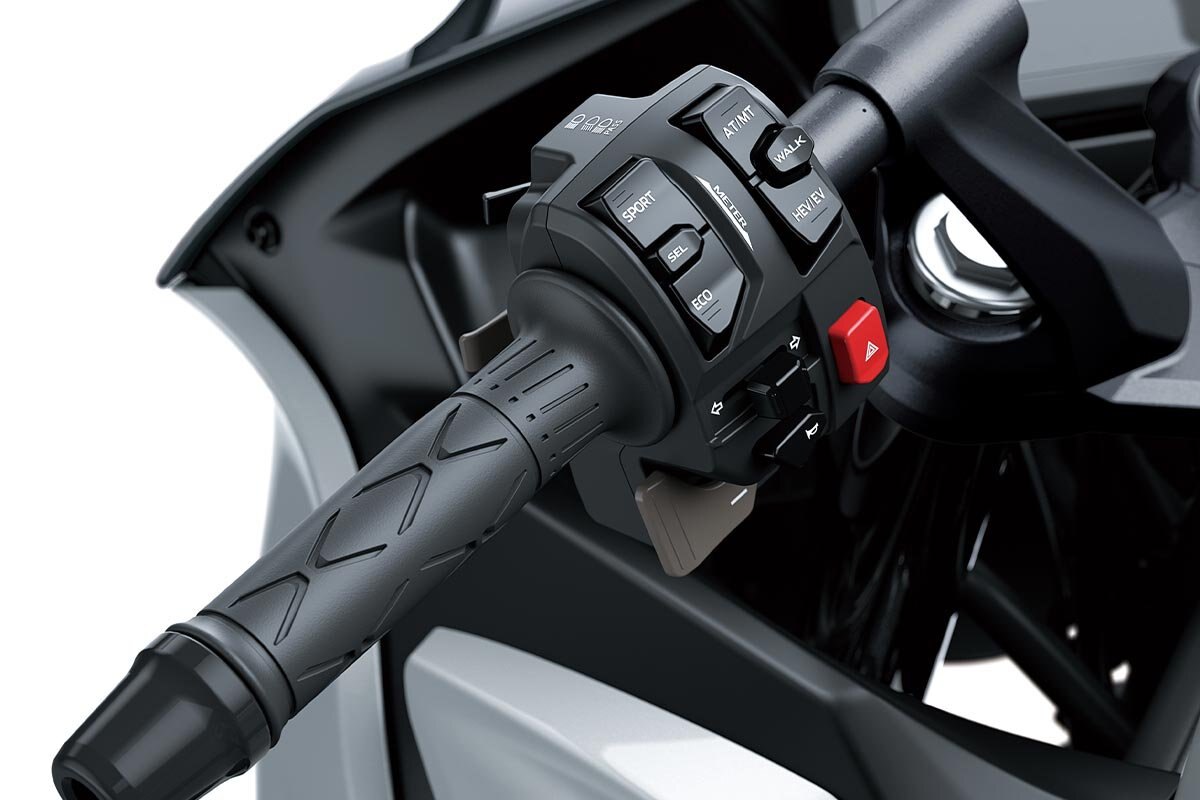
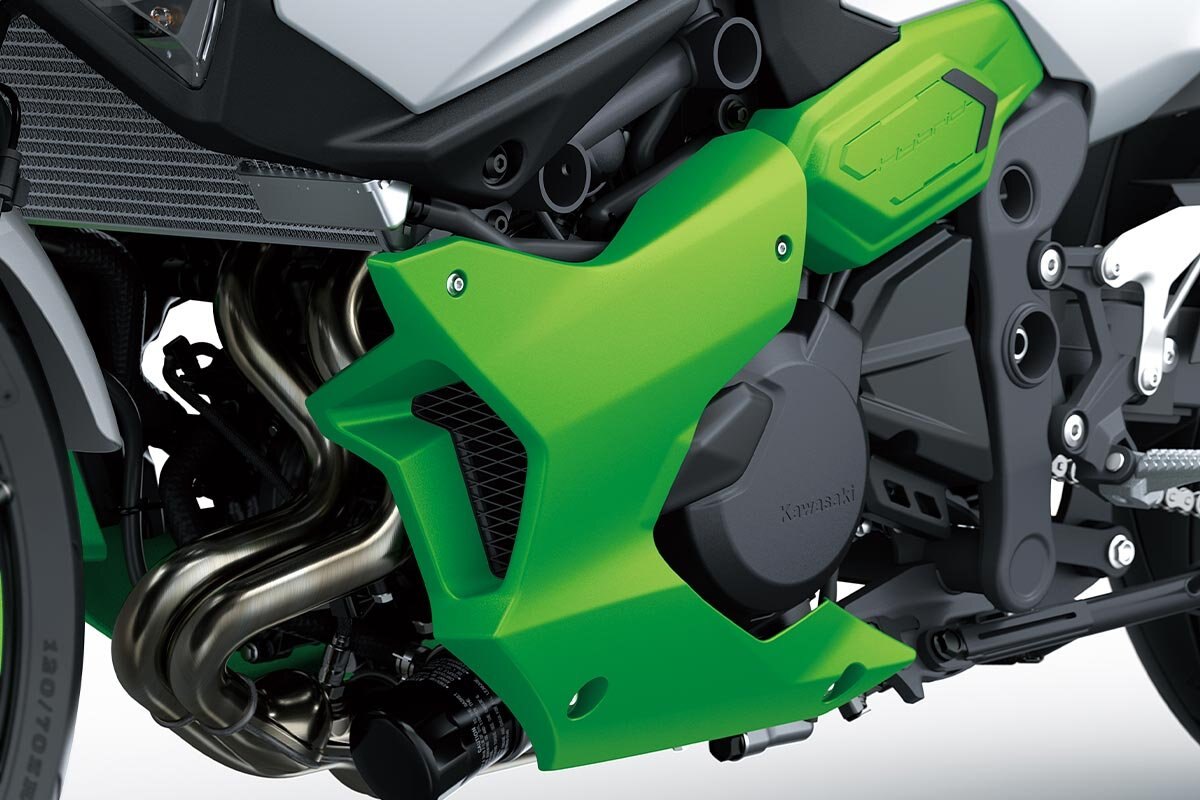
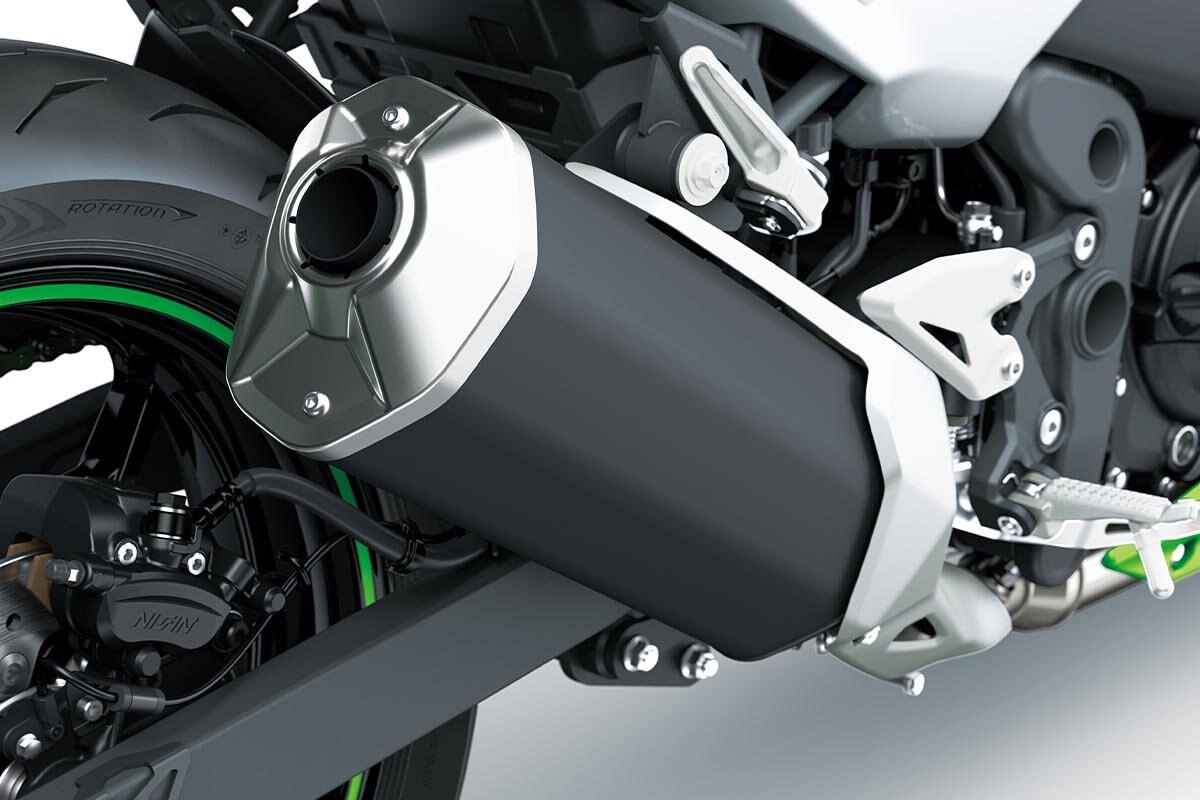
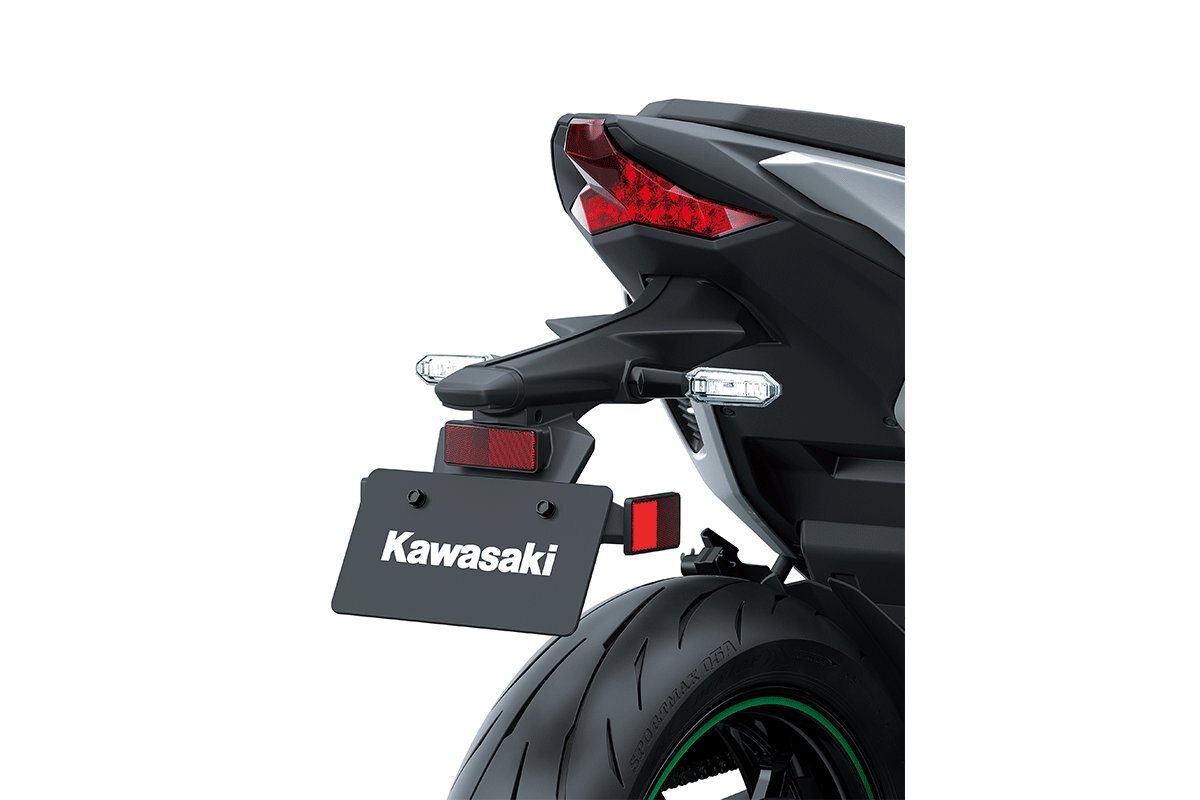
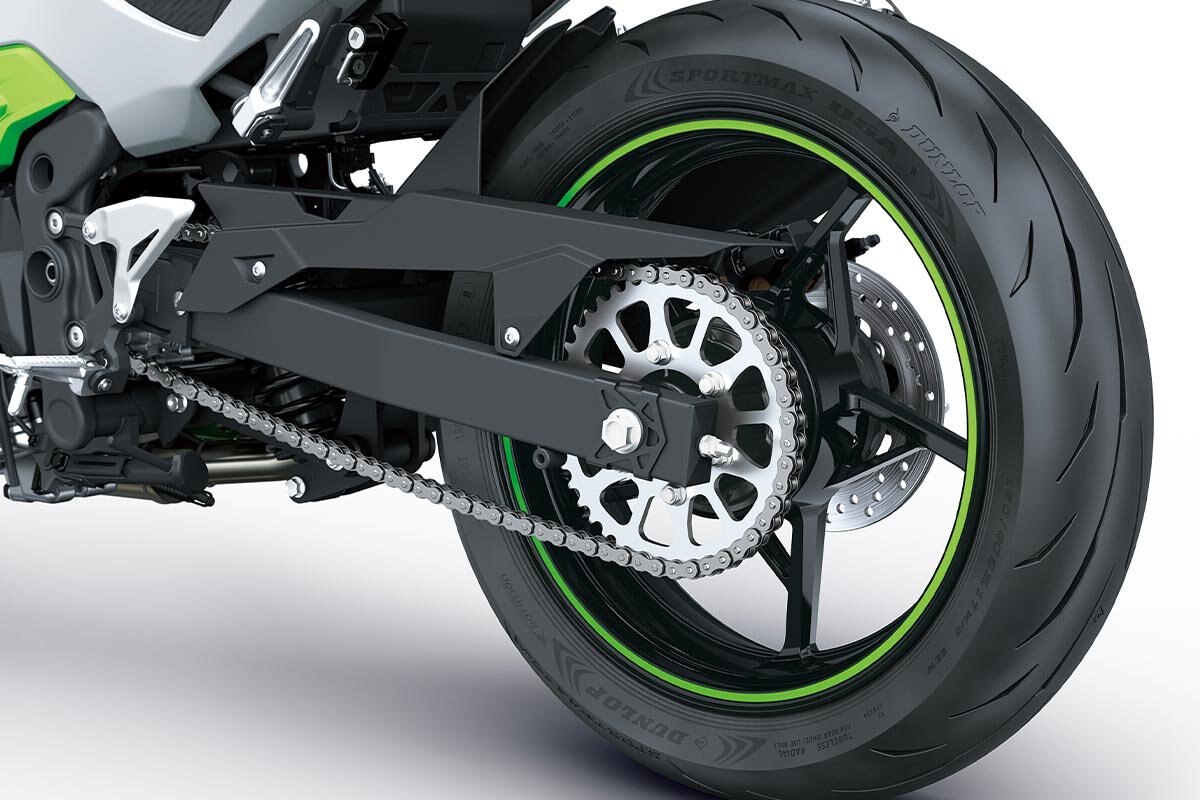
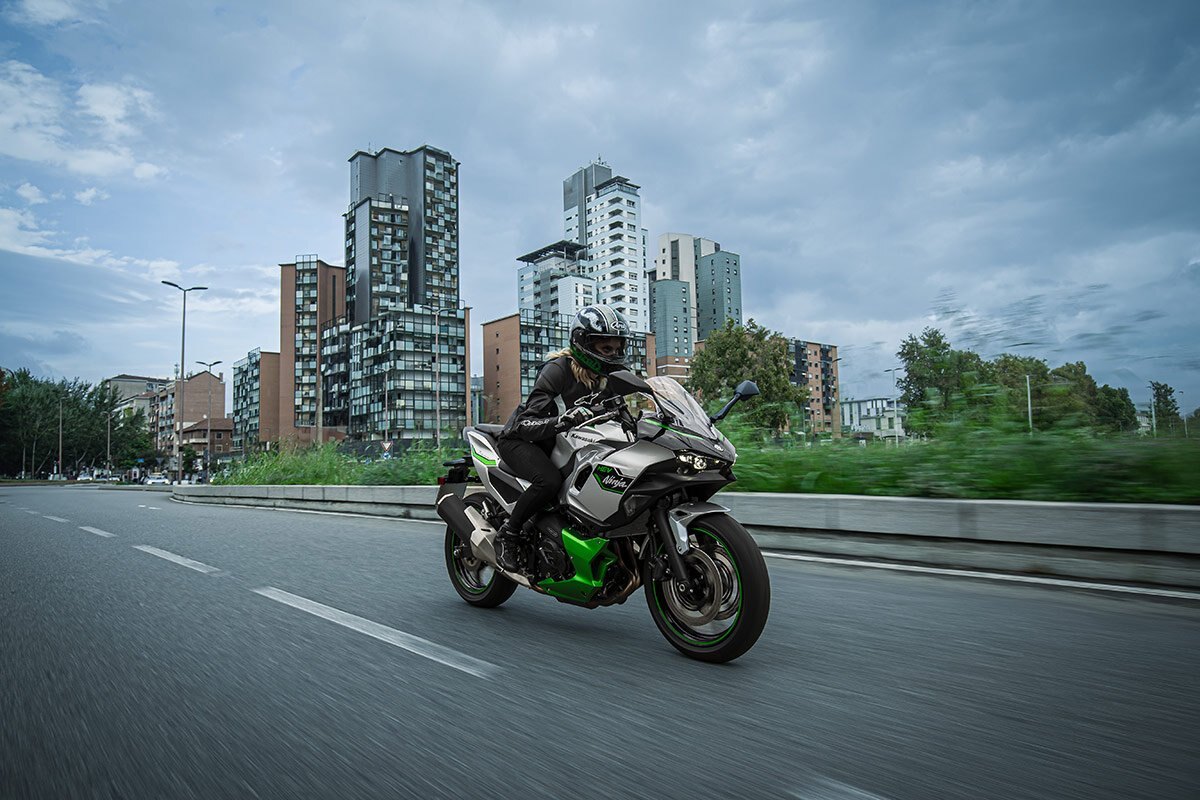
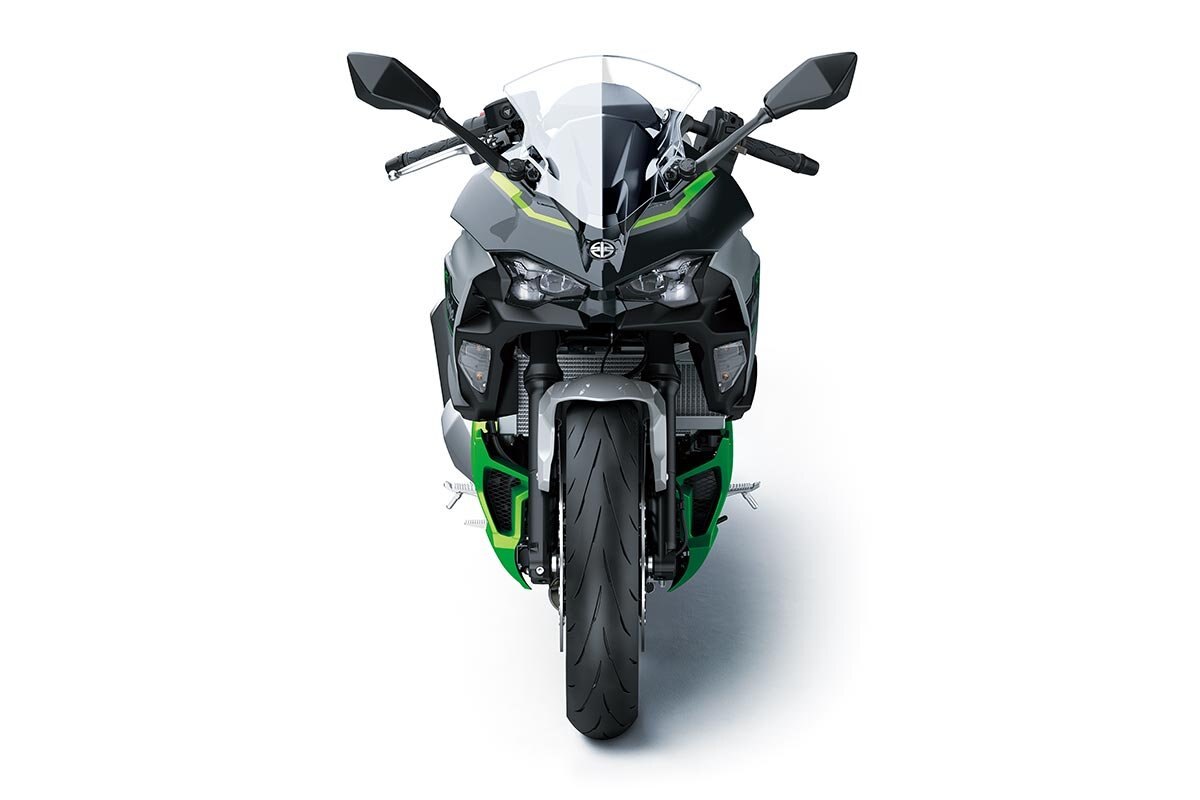
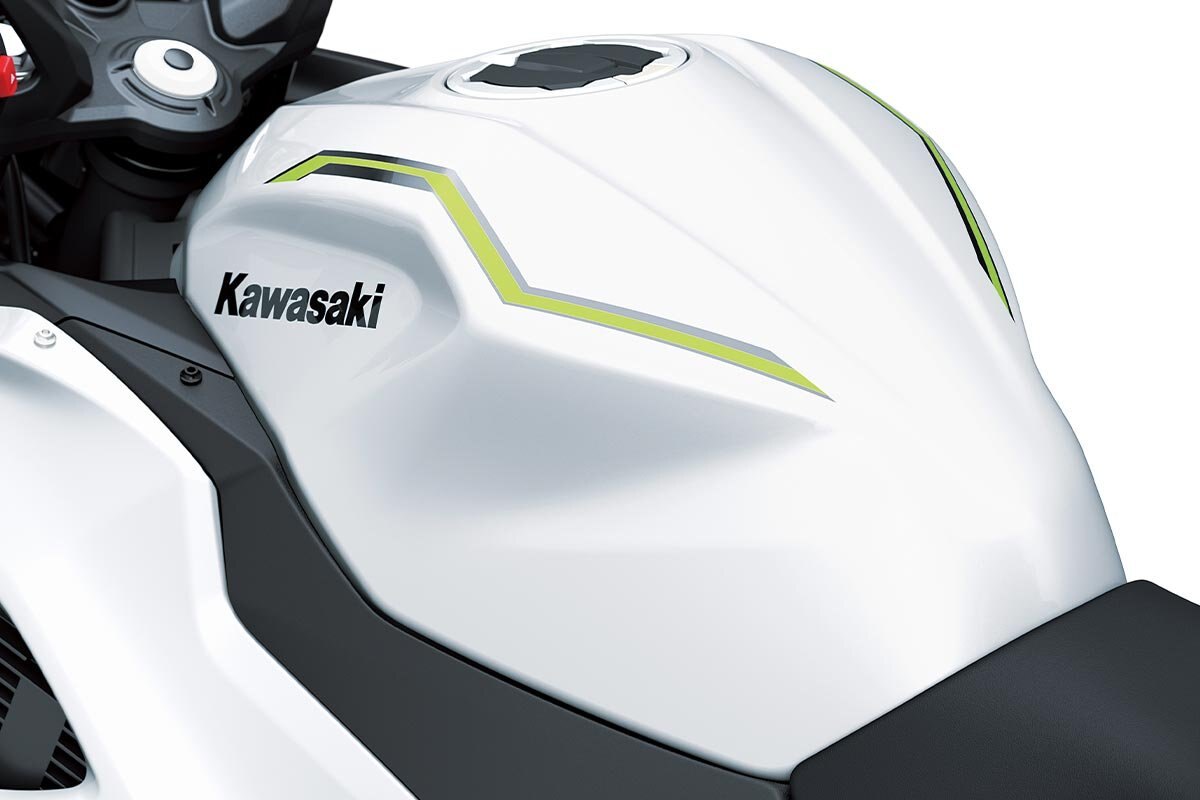
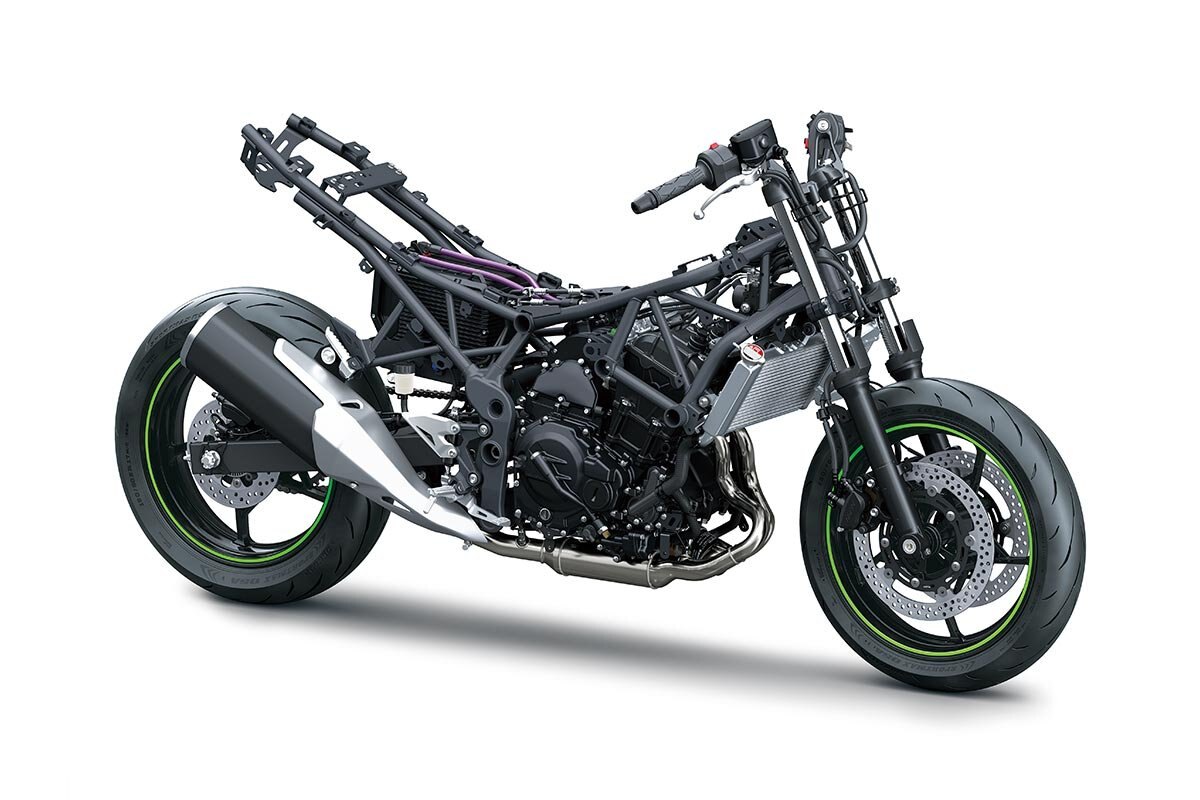
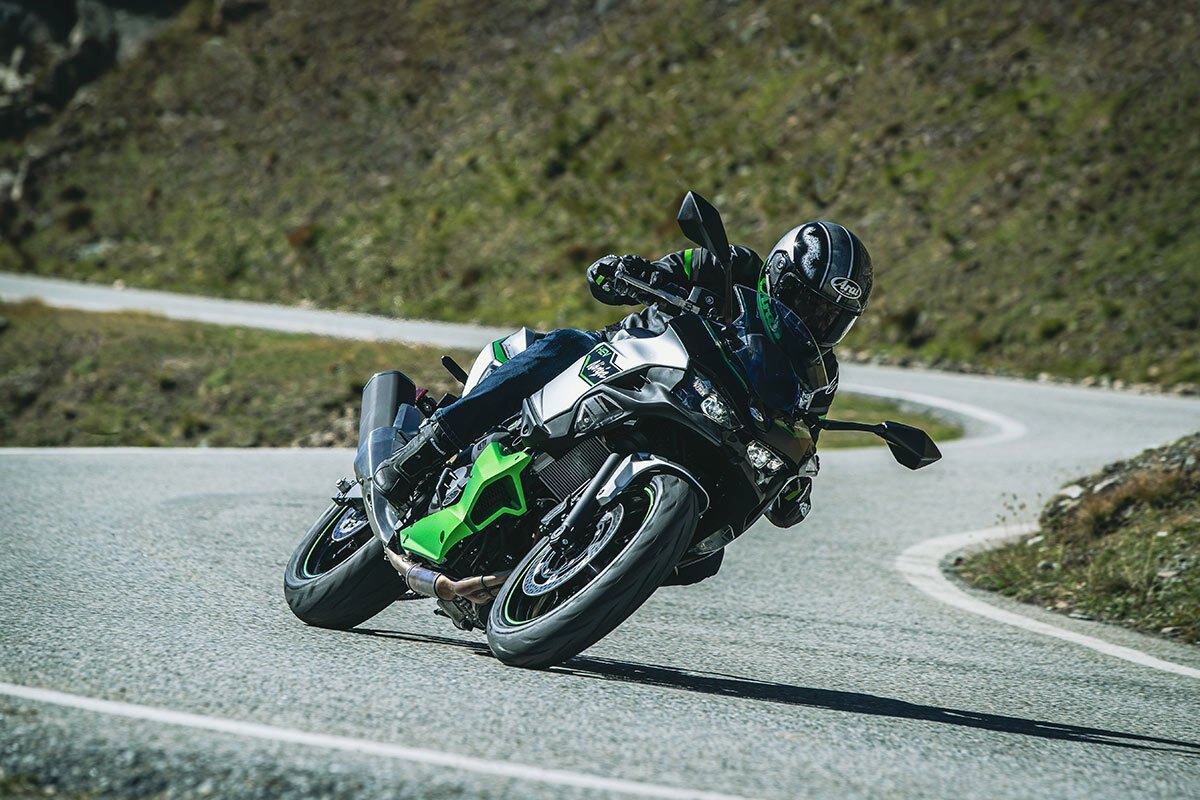
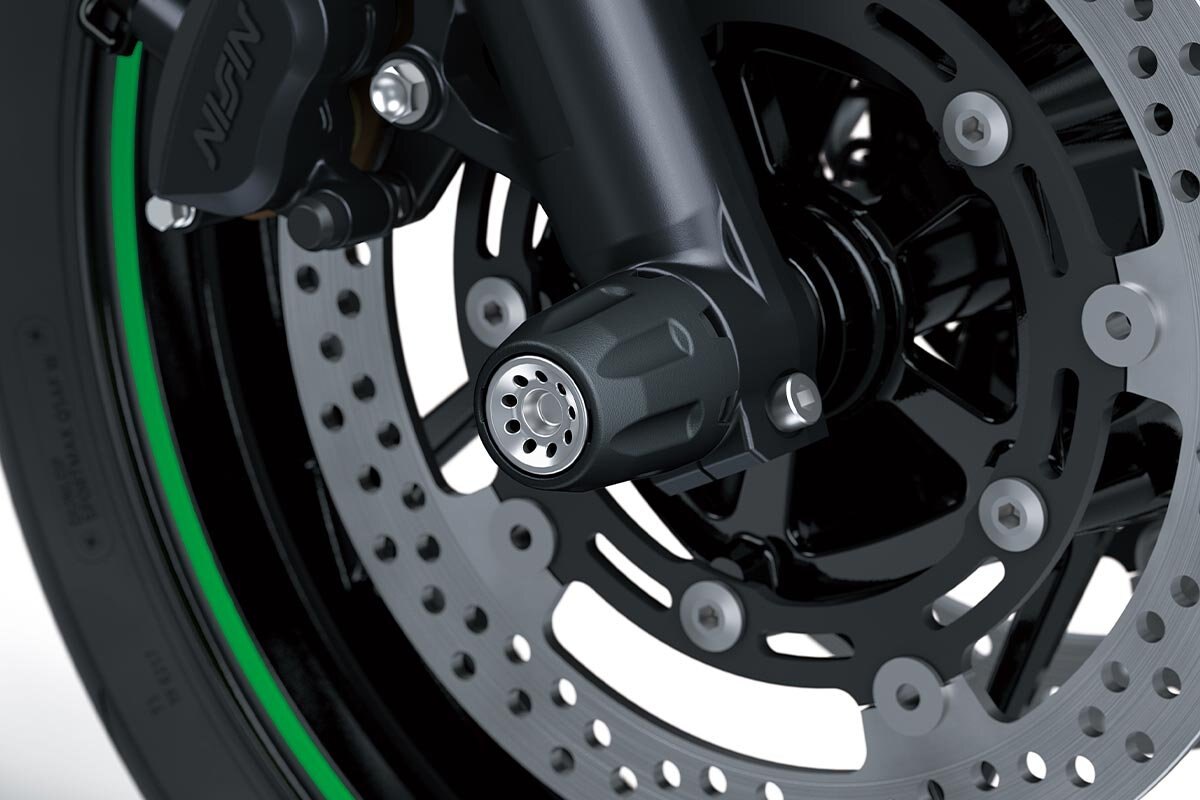
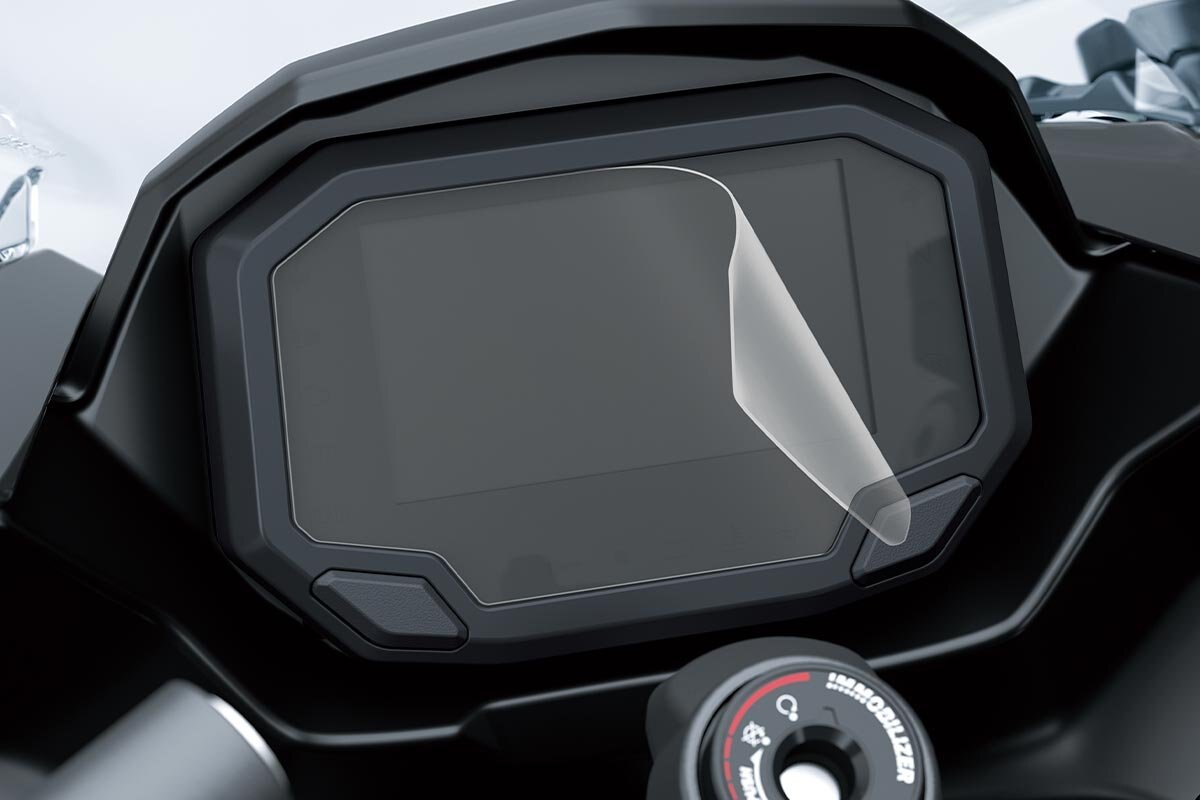
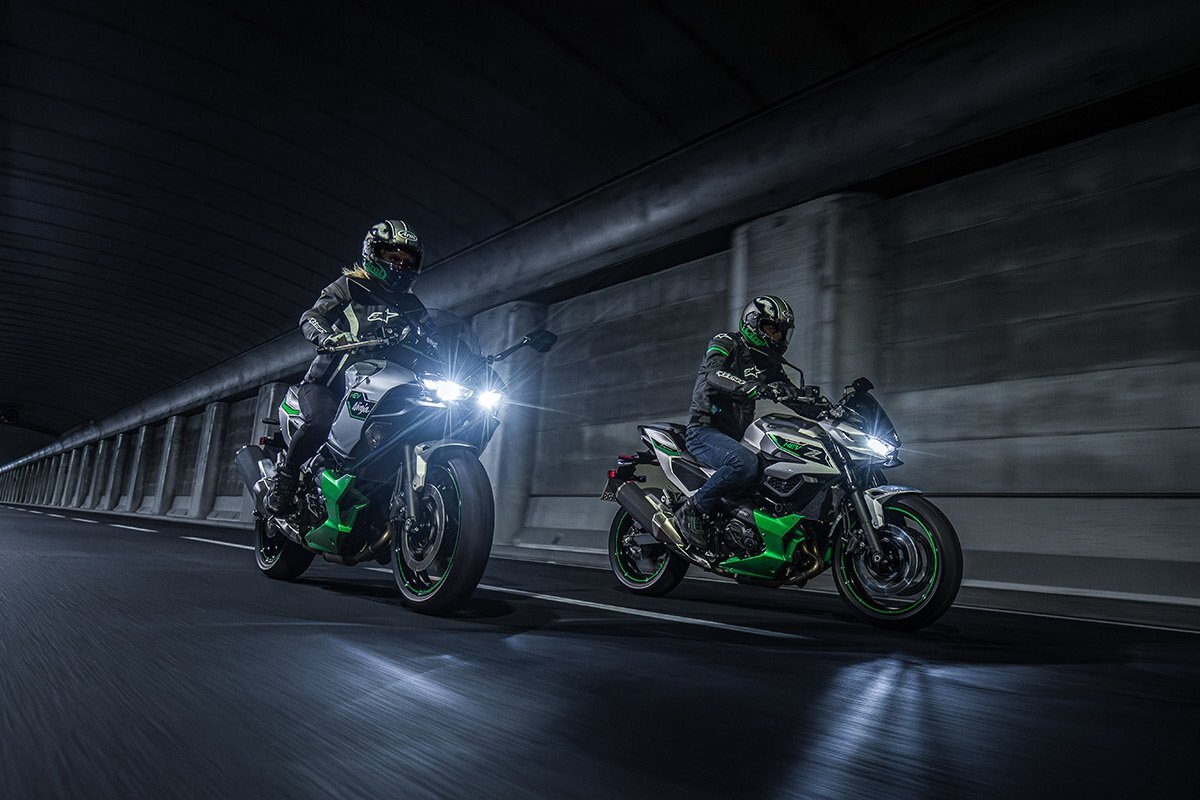
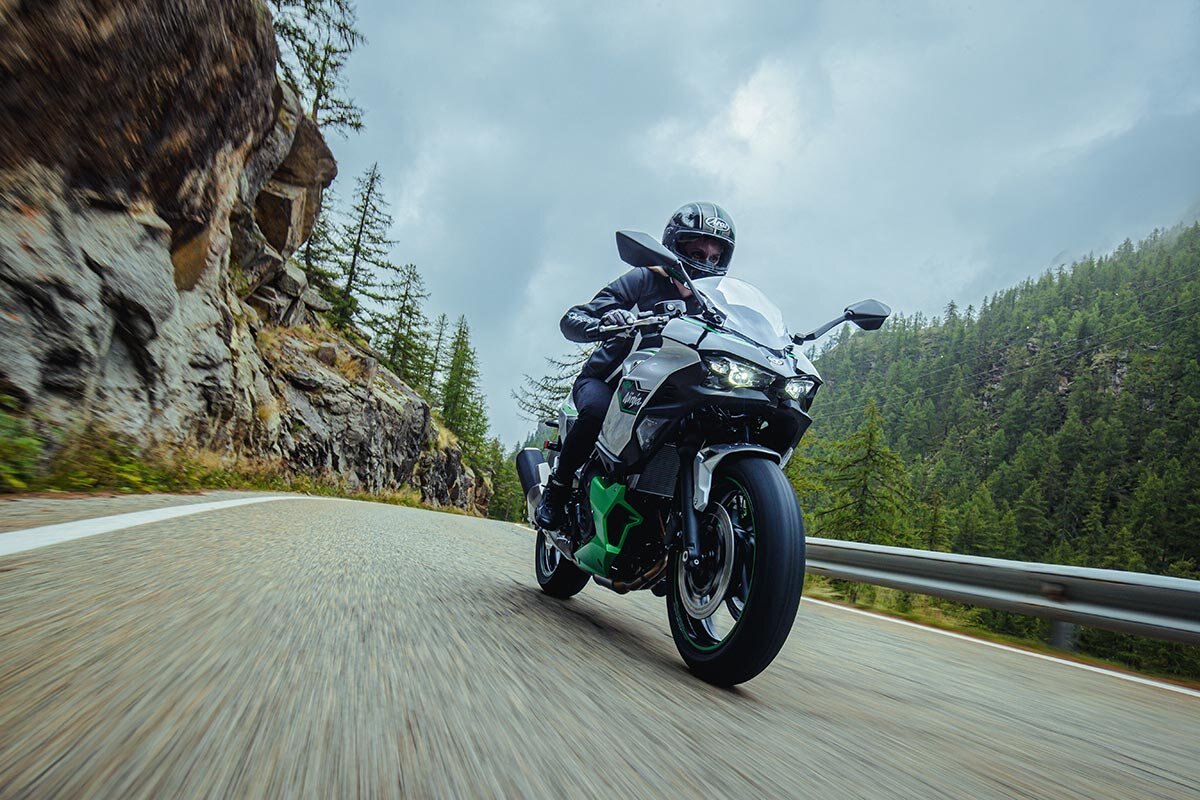
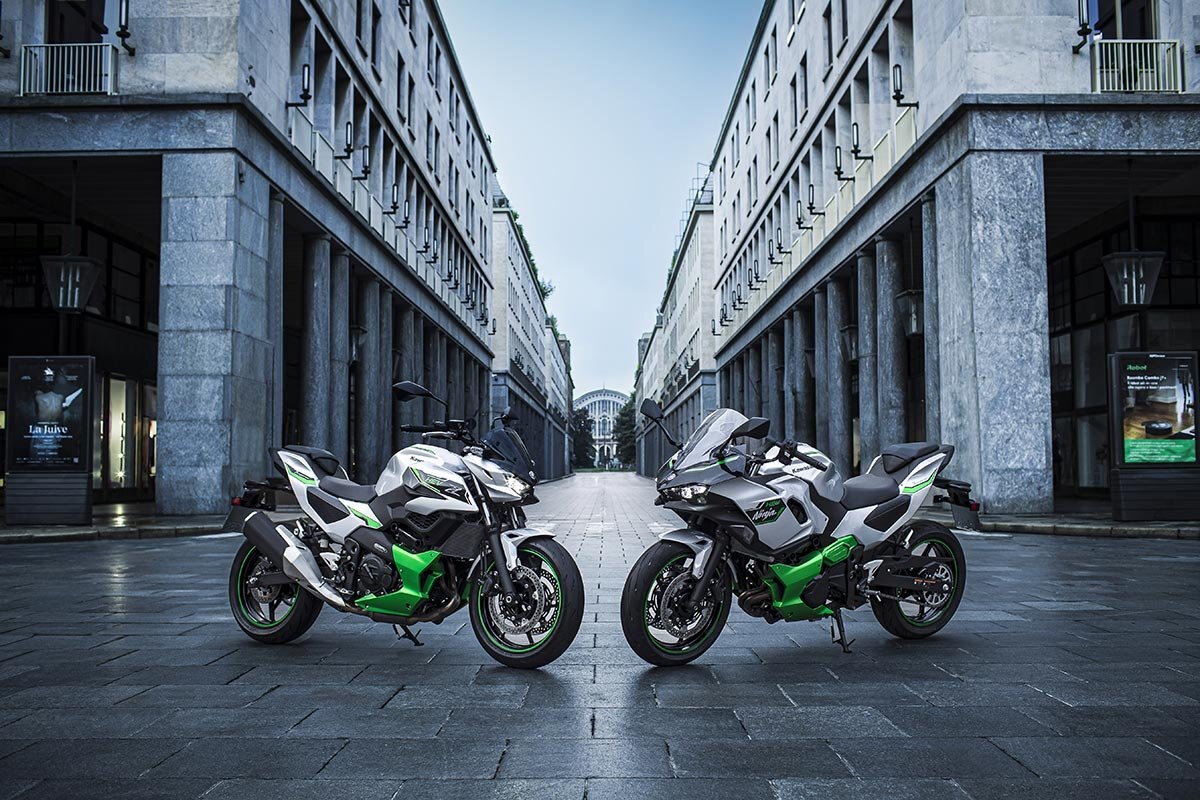
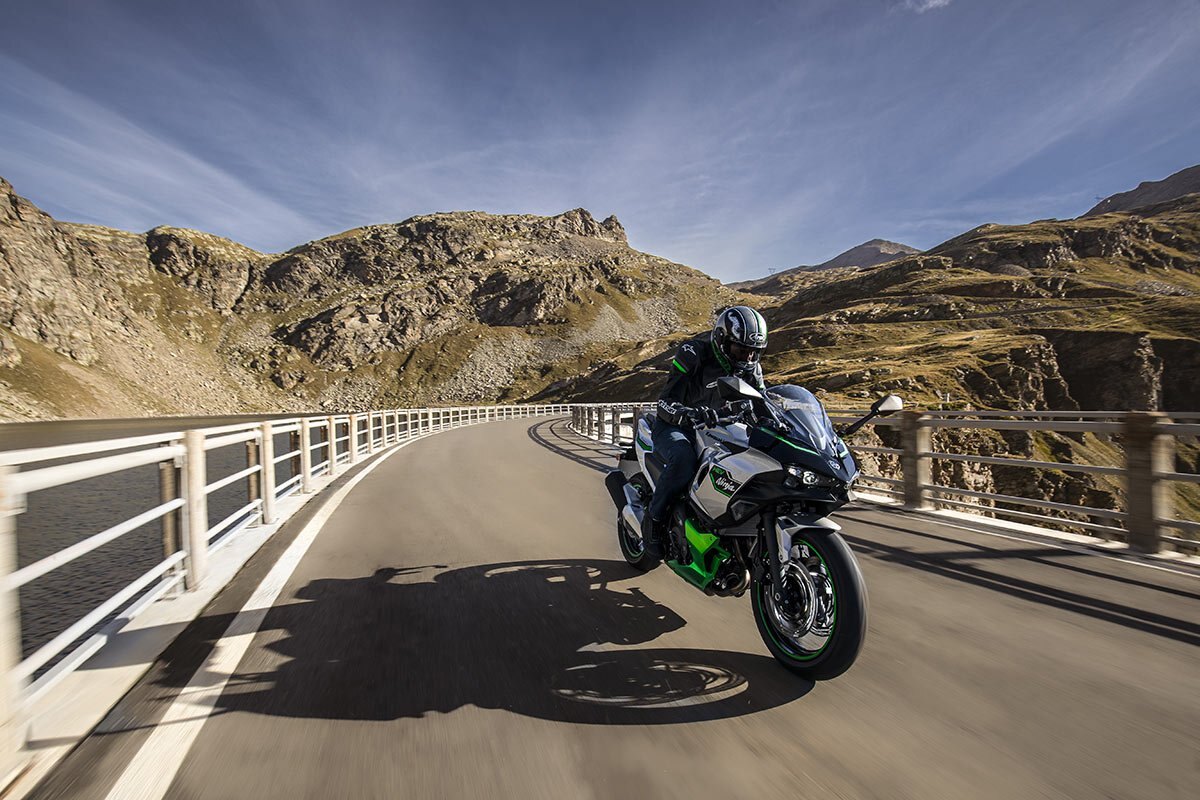
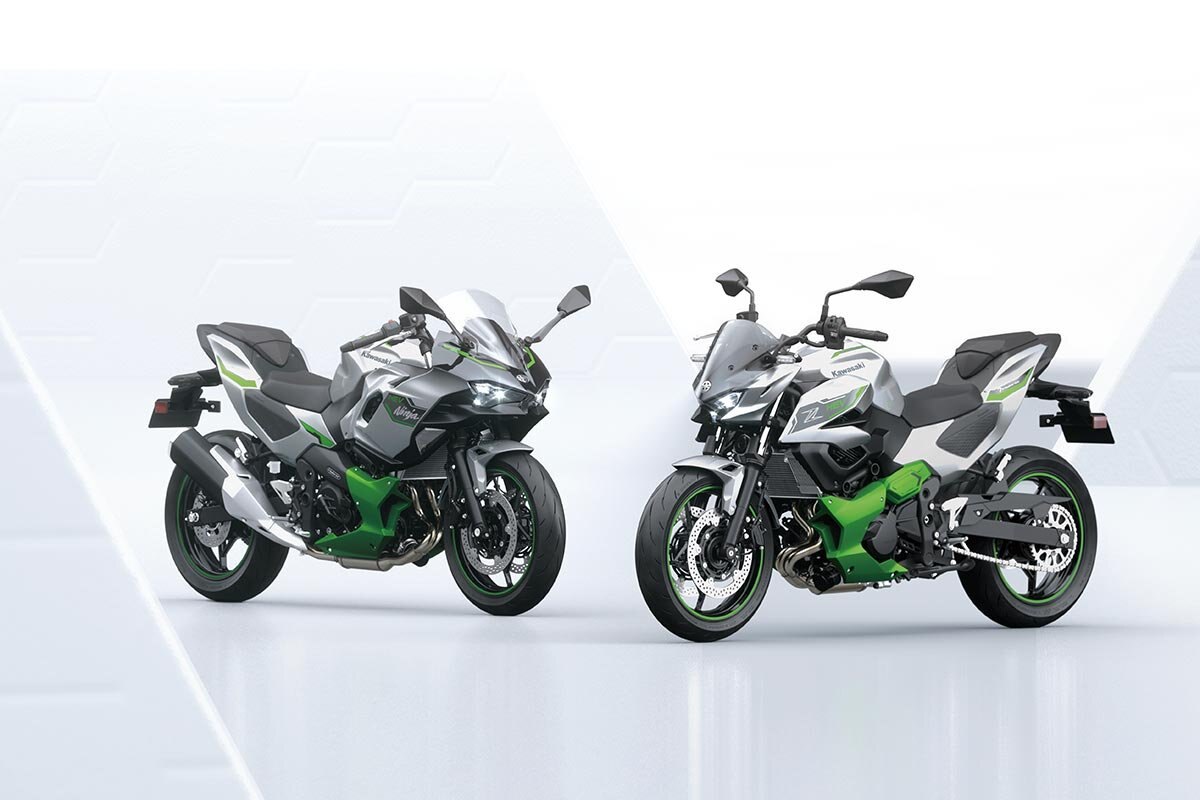
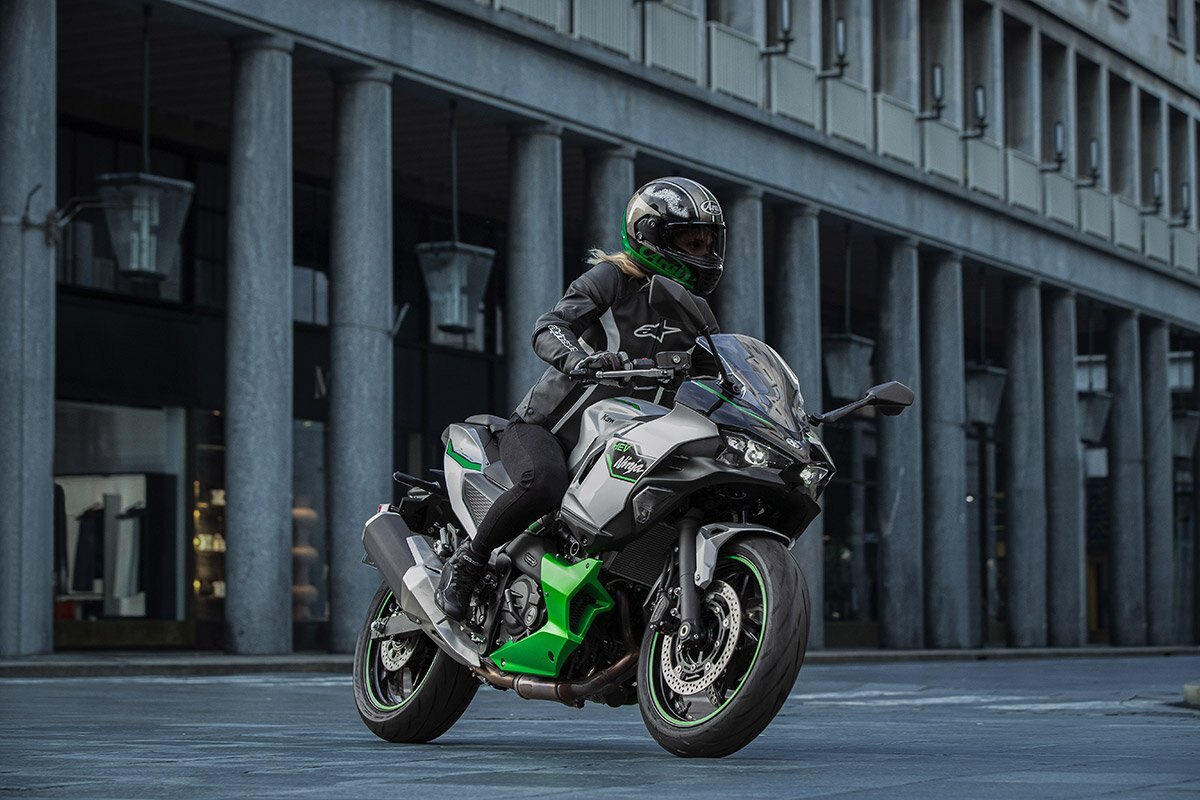
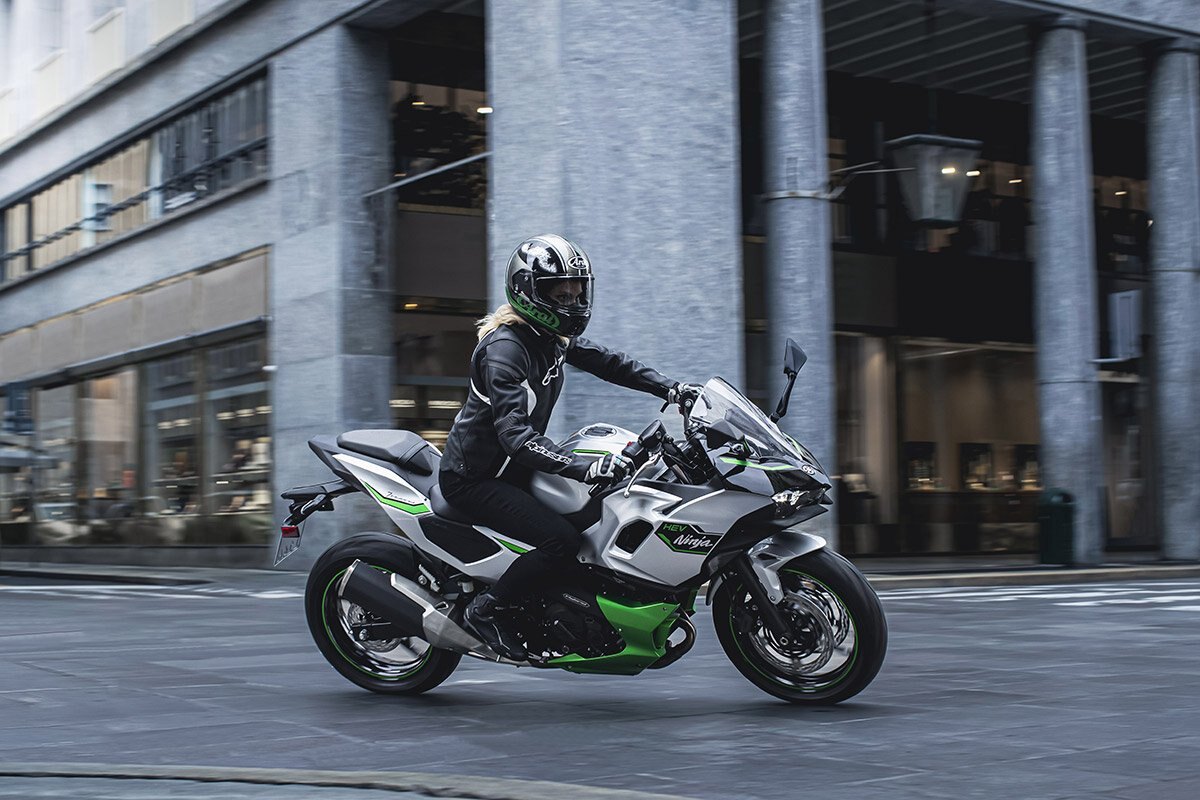
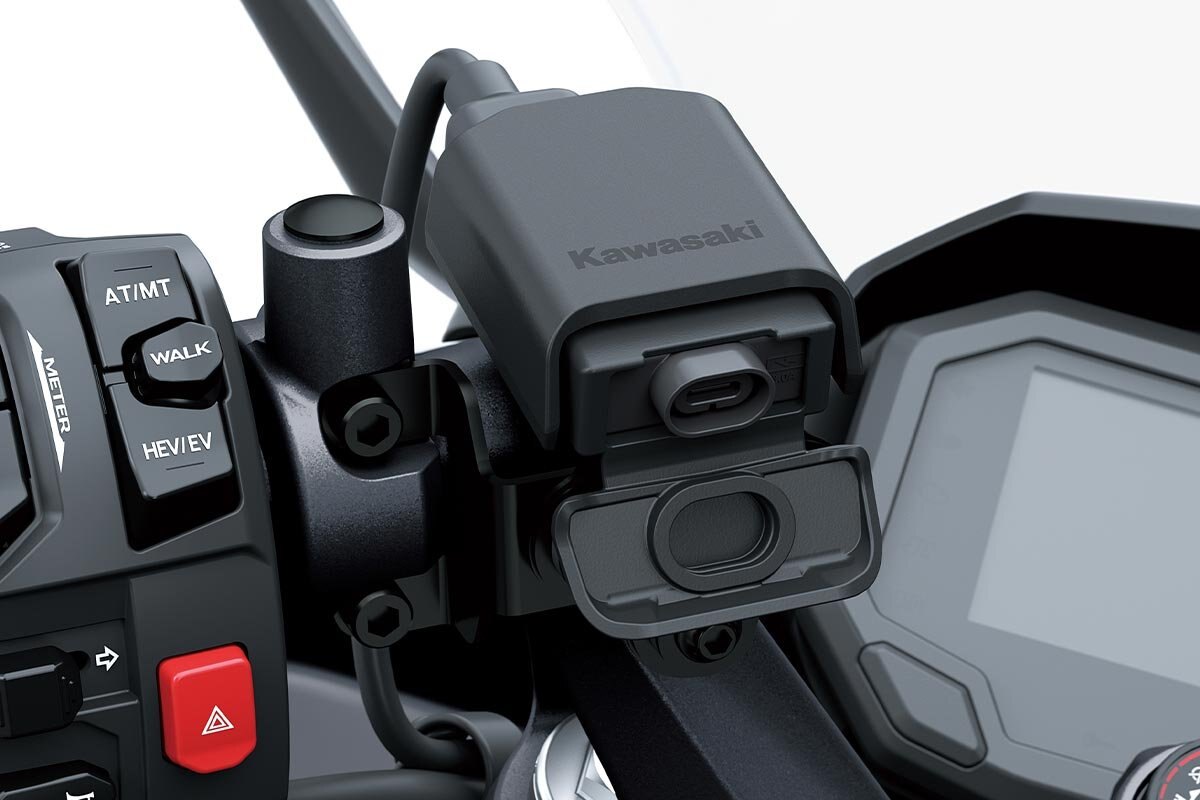
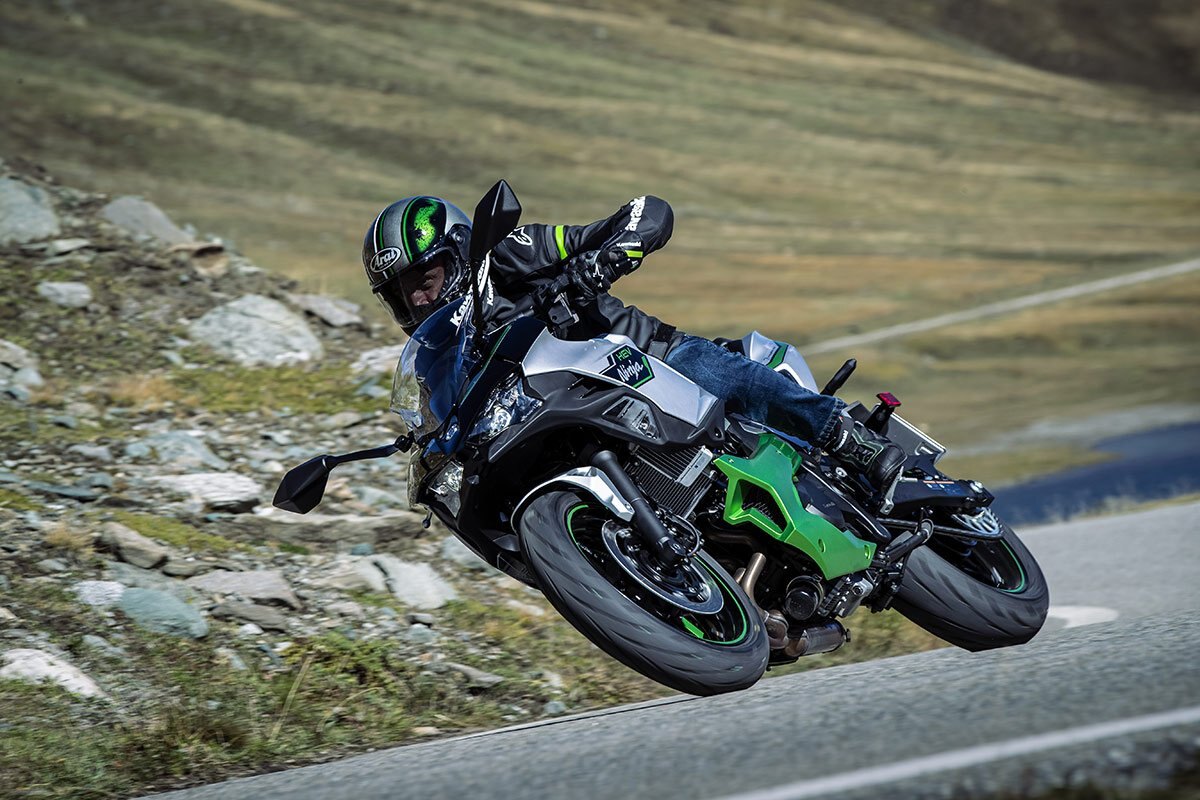
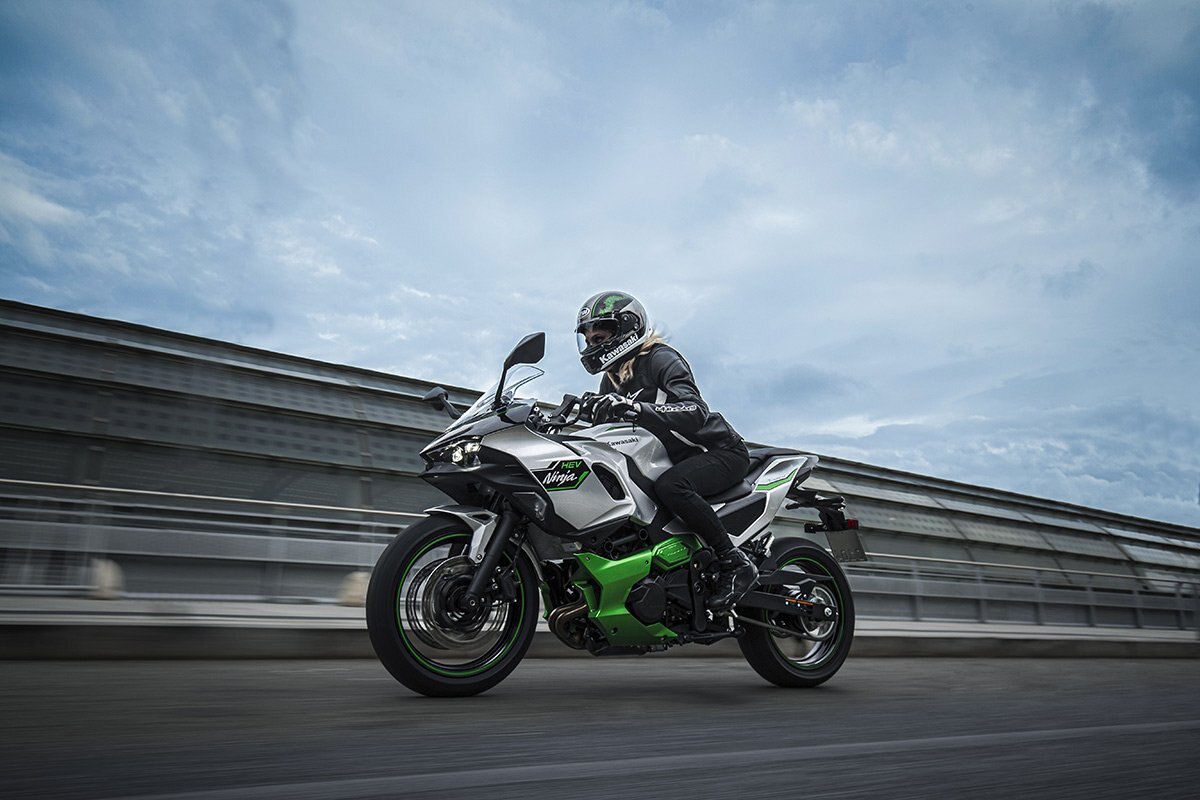
2024 Kawasaki NINJA 7 HYBRID
- Location:
- Cameron Cycle
Automated Manual TransmissionKawasaki’s unique, electronically controlled transmission uses proprietary logic to smoothly shift gears and operate the clutch. During upshifts and downshifts, the ECU manages engine and motor speed for a smooth, natural shifting feel. The fine throttle control and clutch lever operation riders use on a conventional motorcycle are all controlled by the bike. With an automated manual transmission, both full-automatic and manual operation are possible. Gears are shifted by an electric shifter motor directed by the ECU. With full-automatic operation, shift signals are received from the ECU. With manual operation, the ECU sends signals to the shifter motor based on rider input via the shift buttons. The hydraulic clutch is actuated by a dedicated oil pump controlled by a solenoid valve. The ECU determines when the clutch needs to be engaged (to receive driving force from the engine) or disengaged (to shift gears, or when stopped). Unlike a conventional motorcycle, there is no clutch lever or shift pedal to operate. Since actuation of the gears and the hydraulic clutch is carried out by the bike, the rider can focus on throttle control—an advantage when executing U-turns and other low-speed maneuvers, during very-low speed riding, and when riding in heavy stop-and-go traffic. Additional systems like Button-Shift and ALPF (Automatic Launch Position Finder), which automatically returns the transmission to 1st gear when the vehicle stops to facilitate moving off again, can also be incorporated. |
Button-ShiftButton-Shift is one of the new riding experiences offered by Kawasaki’s new HEV models. Instead of using a shift pedal to change gears, the rider initiates gear shifts using the shift buttons on the left handle. A finger switch on the far side is used to shift up; a thumb switch is used to shift down. Actuation of the gears and the hydraulic clutch is then carried out by the bike’s Automated Manual Transmission, which makes this feature possible. |
Smartphone ConnectivityClever technology enables riders to connect to their motorcycle wirelessly. Using the smartphone application “RIDEOLOGY THE APP,” a number of instrument functions can be accessed, contributing to an enhanced motorcycling experience. Vehicle information (such as the odometer, fuel gauge, maintenance schedule, etc) can be viewed on the smartphone. Riding logs (varies by model, but may include GPS route, gear position, rpm, and other information) can be viewed on the smartphone. When connected, telephone (call, mail) notices are displayed on the instrument panel. Riders can also make changes to their motorcycle’s instrument display settings (preferred units, clock and date setting, etc) via the smartphone. And on certain models, it is even possible to check and adjust vehicle settings (such as Rider Mode, electronic rider support features, and payload settings) using the smartphone. |
ABS (ANTI-LOCK BRAKE SYSTEM)Kawasaki ABS systems use front and rear wheel sensors to constantly monitor wheel speed. Should information from either of the sensors indicate that wheel lock has occurred, the ABS ECU directs the pump in the ABS unit to modulate brake fluid pressure (releasing and reapplying pressure so that traction can be regained) until normal operation resumes. ABS offers rider reassurance that contributes to greater riding enjoyment. |
e-boost FunctionUnique to Kawasaki’s EV and HEV models, e-boost allows riders to briefly tap into extra power for stronger acceleration and a higher top speed. To prevent battery overheating, e-boost operation is limited (time varies by model). When all conditions have been met, e-boost availability will be shown on the screen via indicator or the e-boost gauge. Pressing the button on the right handle activates the function, increasing power and torque. The e-boost gauge (now purple) counts down the remaining time available. Once the bike is ready again, the e-boost function can be activated once more. e-boost can be activated on-the-fly (while riding) or when stopped. |
HEV (Hybrid Electric Vehicle)As the world moves towards Carbon Neutrality, Kawasaki is developing a number of future mobility solutions. With power units that combine an internal combustion engine (ICE) with a compact traction motor, Kawasaki hybrid electric vehicles offer the possibility of increased performance in a compact package, improved fuel economy, or zero-emission riding—or all of the above with multiple driving modes—all while maintaining the riding excitement for which Kawasaki motorcycles are known. And with numerous innovative features for riders to explore, like e-boost, button-shift sport riding and WALK Mode, Kawasaki hybrid models are ushering in a new era in riding experience. |
Idling Stop FunctionOn models like the Ninja 7 Hybrid and Z7 Hybrid, the Idling Stop Function offers added convenience when riding in city traffic. When the vehicle comes to a complete stop, the engine turns off to conserve fuel. |
WALK Mode (with Reverse)This convenient mode assists with maneuvering in a parking lot. When engaged, opening the throttle moves the bike forward at walking speed. Closing the throttle past the “zero” point moves the bike in reverse. With the bike stopped and the throttle closed, WALK Mode is activated by pressing and holding the WALK Mode button. Once activated, the screen background turns orange to clearly distinguish from normal operation. |
Zero Emission RidingZero-emission-capable models like Kawasaki’s Electric Vehicles (EV)—and Hybrid Electric Vehicles (HEV) running in EV Mode—create no emissions when being operated. In addition to being environmentally friendly, zero-emission riding offers the possibility to enter restricted areas where ICE (internal combustion engine) vehicles are prohibited. |
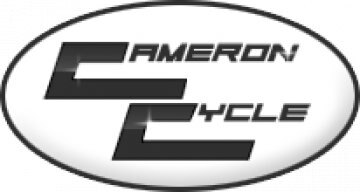










FEATURING
ADDITIONAL VEHICLE FEATURES